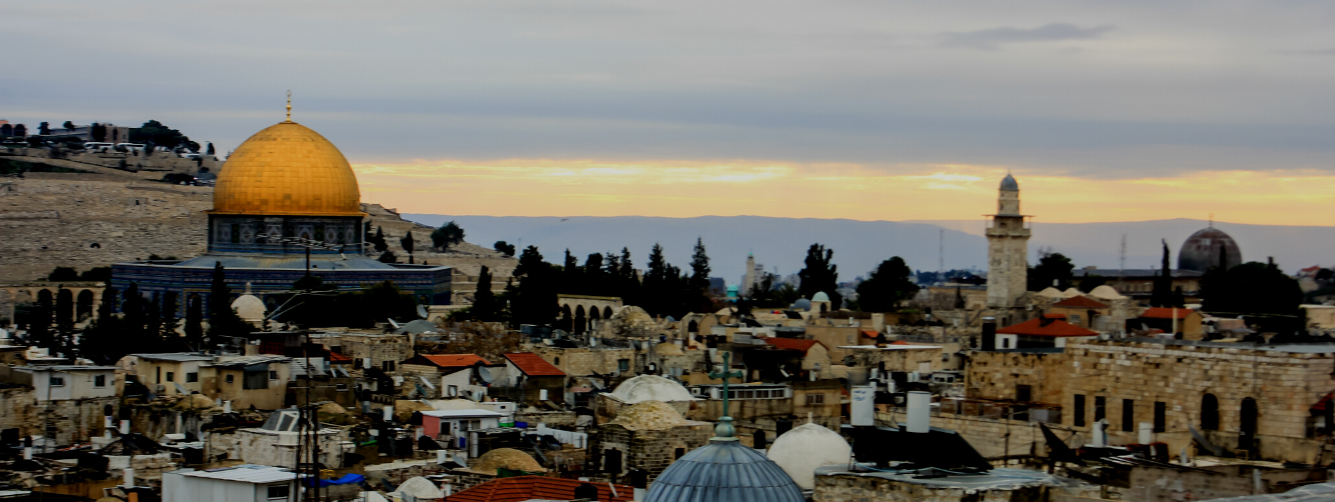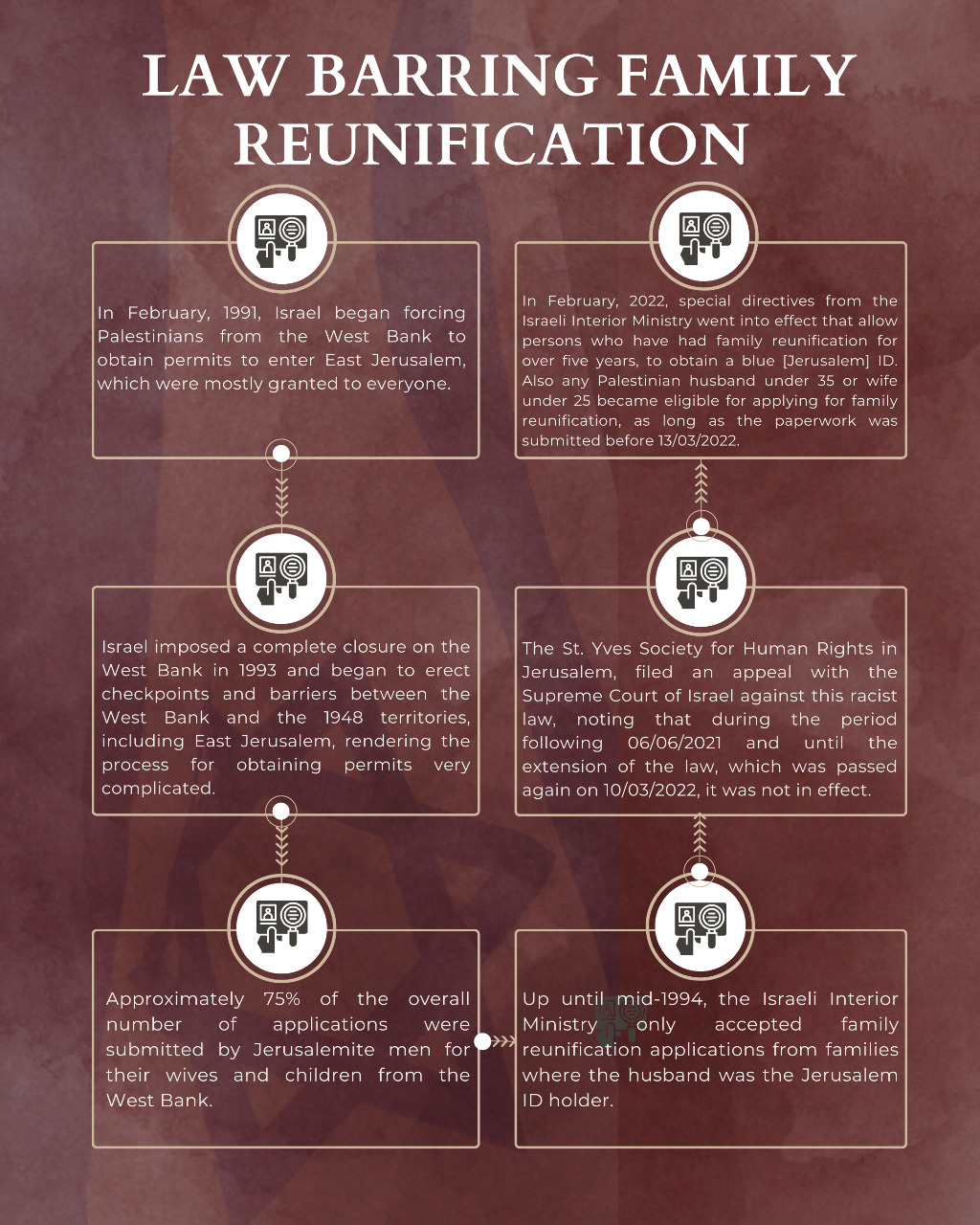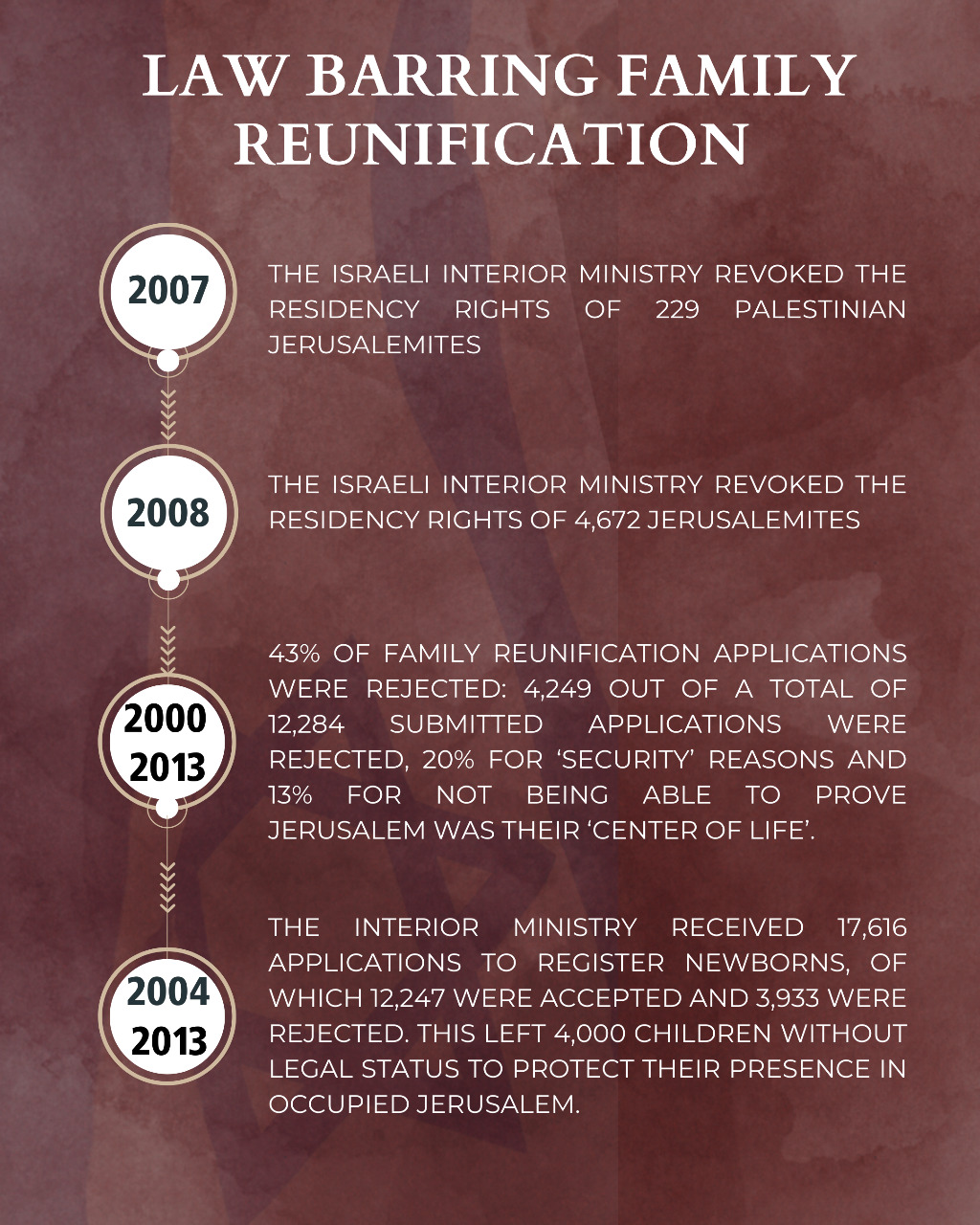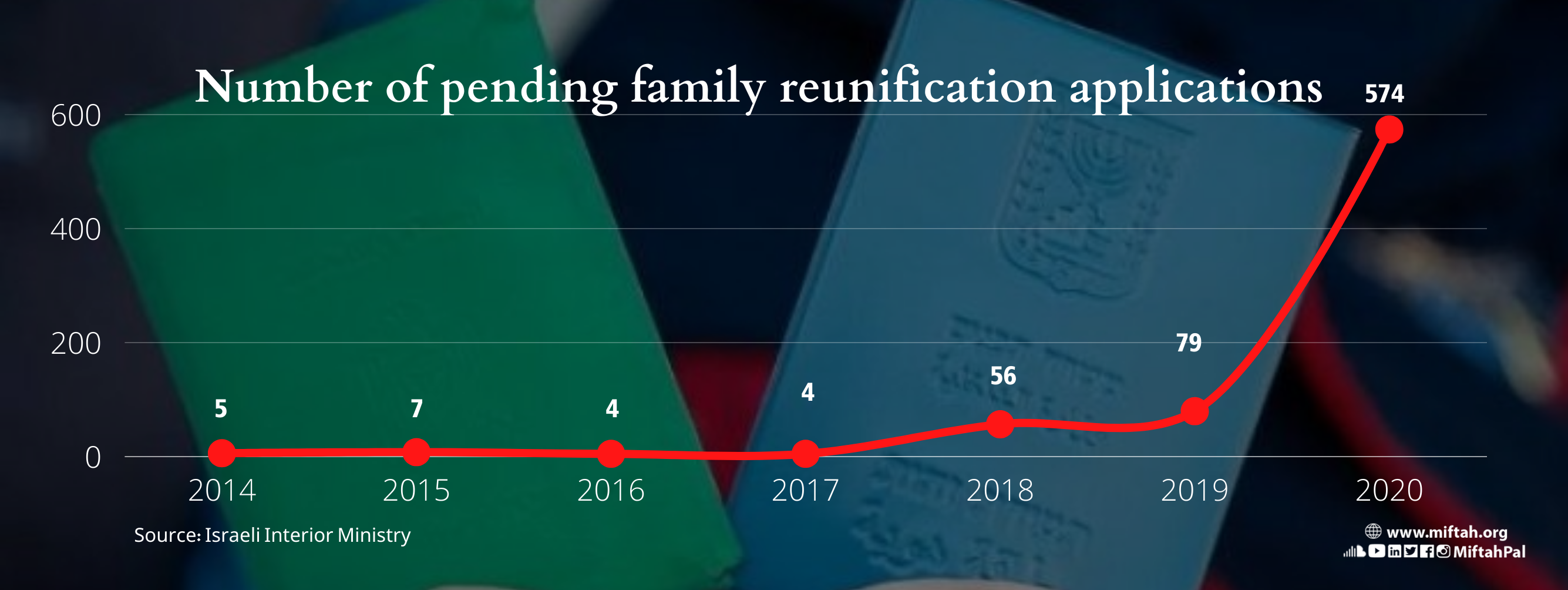
Up until 1991, East Jerusalem was open to Palestinian families with one parent from the West Bank. However, by February of that same year, Israeli occupation authorities began to require permits for Palestinians to enter Jerusalem. At first, this was a mere formality, with permits granted to almost everyone.
Then in 1993, occupation forces implemented a complete closure on the West Bank, setting up military checkpoints between the West Bank and Israel, which has full control over occupied Jerusalem. This turned the process of obtaining permits into a complicated and extremely difficult feat, even for members of the same family where one holds a green, West Bank ID.
Up until 1994, the Israeli Interior Ministry only allowed application for family reunification for families where the husband is a Jerusalem resident, discarding all other applications where the wife is the Jerusalem ID holder. This only changed after resorting to the courts.
Approximately 75% of the overall number of family reunification applications were submitted by Jerusalemite men for their wives and children from the West Bank, while female Jerusalemites were responsible for around 25% of the applications for their West Bank husbands and children. Figures from the Israeli Interior Ministry indicate that approximately 140,000 Palestinians from the West Bank reside in Jerusalem through family reunification applications as of 2002.
Waheed Shabaneh
The family of Jerusalemite, Waheed Shabaneh is one of the thousands of families whose lives have been turned upside down by the Israeli occupation. His is the story of every Jerusalemite barred from living with his/her family under the pretext that he/she does not hold a Jerusalem ID. What’s more, his family reunification application, which he submitted 24 years ago, has been repeatedly rejected.
Waheed’s family saga began when they were not included in the 1967 Israeli census, because the head of the household was in Jordan at the time. When he returned to Jerusalem, he was considered a “non-resident”. Since then, this family was thrust into an unenviable situation like so many other Jerusalemites who lost their residency rights in their own city. In 1997, Shabaneh submitted his first application for family reunification and since that date, he has been repeatedly rejected, under the guise of a ‘secret security file’. This was followed by several raids on his home by occupation forces, which deported and separated him from his family for ‘illegally’ residing in Jerusalem.
The incessant arrests and deportations eventually took a toll on Shabaneh’s health. Today he has a neurological condition for which he is still being treated. Moreover, none of the family’s efforts over the years have resulted in their reunification so Waheed could return home from his ‘forced expulsion’ in Ramallah and join his family in Jerusalem.
Legal developments
In March 2022, Israel passed its “Citizenship Law”, further entrenching its apartheid system, with a majority vote of 45 to 15, thereby restoring much of the legislation in the 2003 Citizenship Law. In its two forms, the law stipulates barring Palestinians from occupied Jerusalem or from inside the Green Line, from submitting family reunification applications for their spouses from the West Bank or Gaza Strip.
The St. Yves Society for Human Rights appealed to the Israeli Supreme Court against this racist law. The law was actually not put into effect during the period between July, 2021 and March, 2022, but was then enacted with special directives from the Israeli Interior Ministry.
These directives went into effect at the beginning of February, 2022, stipulating that Palestinian husbands under the age of 35 or wives under 25 could apply for family reunification, on condition that this is completed before March, 2022 and that their application has been in the system for at least five years.


According to information provided by the Israeli Interior Ministry, there were only five pending family reunification applications in 2014. In 2015, there were only seven pending applications and in 2016 and 2017, there were only four each. However, in 2018, this number jumped to 56 applications and in 2019, it reached 79. By 2020, there were 574 pending applications for family reunification.



